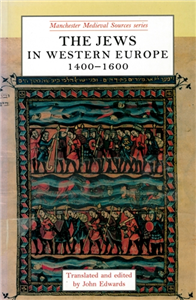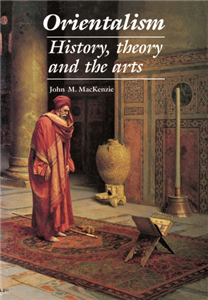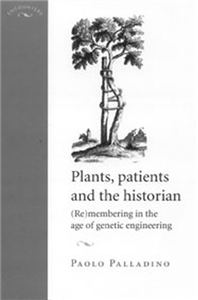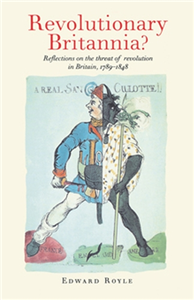Your Search Results
-
Promoted ContentLiterature & Literary StudiesAugust 2024
Instead of modernity
The Western canon and the incorporation of the Hispanic (c. 1850–75)
by Andrew Ginger
Instead of modernity goes to the very heart of comparative cultural study: the question of what happens when intimate, dynamic connections are made over place and time, what it is to feel at home amid the lavish diversity of culture. This ambitious interdisciplinary book reconsiders foundational figures of the modern western canon, from Darwin to Cameron, Baudelaire to Whistler. It weaves together brain images from France, preserved insects from the Americas, glass in London, poetry from Argentina, paintings from Spain. Flaubert, Whitman, and Nietzsche find themselves with Hostos from Puerto Rico and Gorriti from Argentina. The book ranges over theoretical fields: trauma and sexuality studies, theories of visuality, the philosophy of sacrifice and intimacy, the thought of Wittgenstein. Instead of modernity is an adventure in the practice of comparative writing: resonances join suggestively over place and time, the textures of words, phrases and images combine to form moods.
-
Promoted ContentLiterature & Literary StudiesMarch 2017
Asia in Western fiction
by Robin Winks
Any reader who has ever visited Asia knows that the great bulk of Western-language fiction about Asian cultures turns on stereotypes. This book, a collection of essays, explores the problem of entering Asian societies through Western fiction, since this is the major port of entry for most school children, university students and most adults. In the thirteenth century, serious attempts were made to understand Asian literature for its own sake. Hau Kioou Choaan, a typical Chinese novel, was quite different from the wild and magical pseudo-Oriental tales. European perceptions of the Muslim world are centuries old, originating in medieval Christendom's encounter with Islam in the age of the Crusades. There is explicit and sustained criticism of medieval mores and values in Scott's novels set in the Middle Ages, and this is to be true of much English-language historical fiction of the nineteenth and early twentieth centuries. Even mediocre novels take on momentary importance because of the pervasive power of India. The awesome, remote and inaccessible Himalayas inevitably became for Western writers an idealised setting for novels of magic, romance and high adventure, and for travellers' tales that read like fiction. Chinese fictions flourish in many guises. Most contemporary Hong Kong fiction reinforced corrupt mandarins, barbaric punishments and heathens. Of the novels about Japan published after 1945, two may serve to frame a discussion of Japanese behaviour as it could be observed (or imagined) by prisoners of war: Black Fountains and Three Bamboos.
-
 Trusted Partner
Humanities & Social SciencesNovember 2020
Trusted Partner
Humanities & Social SciencesNovember 2020Non-Western responses to terrorism
by Michael J. Boyle
This edited collection surveys how non-Western states have responded to the threats of domestic and international terrorism in ways consistent with and reflective of their broad historical, political, cultural and religious traditions. It presents a series of eighteen case studies of counterterrorism theory and practice in the non-Western world, including countries such as China, Japan, India, Pakistan, Egypt and Brazil. These case studies, written by country experts and drawing on original language sources, demonstrate the diversity of counter-terrorism theory and practice and illustrate how the world 'sees' and responds to terrorism is different from the way that the United States, the United Kingdom and many European governments do. This volume - the first ever comprehensive account of counter-terrorism in the non-Western world - will be of interest to students, scholars, students and policymakers responsible for developing counter-terrorism policy.
-
 Trusted Partner
Humanities & Social SciencesJune 2011
Trusted Partner
Humanities & Social SciencesJune 2011The Europeanisation of the Western Balkans
EU justice and home affairs in Croatia and Macedonia
by Florian Trauner, Emil Kirchner, Thomas Christiansen
This book deals with the scope and nature of the EU's external influence over South-Eastern Europe in the present enlargement. By elaborating on the Europeanisation of the Western Balkans in a systematic, theory-oriented and comparative way, the book provides rich insight into the dynamics of the current enlargement and offers a comprehensive analysis of the EU's avenues of external leverage in the field of justice and home affairs, a key sector of cooperation in the EU-Western Balkans relations. The book is an important contribution towards a better understanding of how the EU's use of pre-accession conditionality has changed since the Eastern enlargement. It will be of interest to decision-makers, officials and academics concerned with adaptation and transformation processes in South-Eastern Europe and the possibilities and limitations of the EU's influence in the outside world. ;
-
 Trusted Partner
Humanities & Social SciencesAugust 2023
Trusted Partner
Humanities & Social SciencesAugust 2023Picturing the Western Front
Photography, practices and experiences in First World War France
by Beatriz Pichel
Between 1914 and 1918, military, press and amateur photographers produced thousands of pictures. Either classified in military archives specially created with this purpose in 1915, collected in personal albums or circulated in illustrated magazines, photographs were supposed to tell the story of the war. Picturing the Western Front argues that photographic practices also shaped combatants and civilians' war experiences. Doing photography (taking pictures, posing for them, exhibiting, cataloguing and looking at them) allowed combatants and civilians to make sense of what they were living through. Photography mattered because it enabled combatants and civilians to record events, establish or reinforce bonds with one another, represent bodies, place people and events in imaginative geographies and making things visible, while making others, such as suicide, invisible. Photographic practices became, thus, frames of experience.
-
 Trusted Partner
Humanities & Social SciencesJuly 2005
Trusted Partner
Humanities & Social SciencesJuly 2005The extreme Right in Western Europe
Success or failure?
by Elisabeth Carter
Parties of the extreme Right have experienced a dramatic rise in electoral support in many countries in Western Europe over the last two and a half decades. This phenomenon has been far from uniform, however, and the considerable attention that the more successful Right-wing extremist parties have received has sometimes obscured the fact that these parties have not recorded high electoral results in all West European democracies. Furthermore, their electoral scores have also varied over time, with the same party recording low electoral scores in one election but securing high electoral scores in another. This book examines the reasons behind the variation in the electoral fortunes of the West European parties of the extreme Right in the period since the late 1970s. It proposes a number of different explanations as to why certain parties of the extreme Right have performed better than others at the polls and it investigates each of these different explanations systematically and in depth. ;
-
 Trusted Partner
Humanities & Social SciencesSeptember 2017
Trusted Partner
Humanities & Social SciencesSeptember 2017The future of western capitalism?
by Alberta Andreotti, David Benassi, Yuri Kazepov
-
 Trusted Partner
Humanities & Social SciencesFebruary 2013
Trusted Partner
Humanities & Social SciencesFebruary 2013The Jews in western Europe, 1400–1600
by Translated and Edited by John Edwards
As European politics, society, economy and religion underwent epoch-making changes between 1400 and 1600, the treatment of Europe's Jews by the non-Jewish majority was, then as in later periods, a symptom of social problems and tensions in the Continent as a whole. Through a broad-ranging collection of documents, John Edwards sets out to present a vivid picture of the Jewish presence in European life during this vital and turbulent period. Subjects covered include the Jews' own economic presence and culture, social relations between Jews and Christians, the policies and actions of Christian authorities in Church and State. He also draws upon original source material to convey ordinary people's prejudices about Jews, including myths about Jewish 'devilishness', money-grabbing, and 'ritual murder' of Christian children. Full introductory and explanatory material makes accessible the historical context of the subject and highlights the insights offered by the documents as well as the pitfalls to be avoided in this area of historical enquiry. This volume aims to provide a coherent working collection of texts for lecturers, teachers and students who wish to understand the experience of Jewish Europeans in this period. ;
-
 Trusted Partner
Humanities & Social SciencesJanuary 2013
Trusted Partner
Humanities & Social SciencesJanuary 2013The Jews in western Europe, 1400–1600
by John Edwards
As European politics, society, economy and religion underwent epoch-making changes between 1400 and 1600, the treatment of Europe's Jews by the non-Jewish majority was, then as in later periods, a symptom of social problems and tensions in the Continent as a whole. Through a broad-ranging collection of documents, John Edwards sets out to present a vivid picture of the Jewish presence in European life during this vital and turbulent period. Subjects covered include the Jews' own economic presence and culture, social relations between Jews and Christians, the policies and actions of Christian authorities in Church and State. He also draws upon original source material to convey ordinary people's prejudices about Jews, including myths about Jewish 'devilishness', money-grabbing, and 'ritual murder' of Christian children. Full introductory and explanatory material makes accessible the historical context of the subject and highlights the insights offered by the documents as well as the pitfalls to be avoided in this area of historical enquiry. This volume aims to provide a coherent working collection of texts for lecturers, teachers and students who wish to understand the experience of Jewish Europeans in this period.
-
 Trusted Partner
Science & MathematicsFebruary 2025
Trusted Partner
Science & MathematicsFebruary 2025Assemblages of cancer
Experiences and contexts of breast cancer in the UK, France and Italy
by Cinzia Greco
Assemblages of cancer illustrates the tensions in the experiences and context of breast cancer in Western Europe. Breast cancer is presented as a success story in oncology, especially in countries with advanced, universal healthcare systems. At the same time, individual experiences are shaped by uncertainty, local variability of healthcare provisions, and the need for patients to assemble information about the treatments, knowledge on healthcare systems navigation, and different processes of meaning-making to manage the uncertainty and variability characterising individual outcomes. The book explores both how individual bodies and experiences are transformed by different local medical practices, institutions and discourses of breast cancer and how patients need to find their own way in these contexts. Assemblages of cancer is based on ten years of ethnographic work with patients and medical professionals in the UK, France and Italy.
-
 Trusted Partner
June 1995
Trusted Partner
June 1995Orientalism
History, Theory and the Arts
by John M. MacKenzie
The Orientalism debate, inspired by the work of Edward Said, has been a major source of cross-disciplinary controversy in recent years. John MacKenzie offers a comprehensive re-evaluation of this vast literature of Orientalism and brings to the subject highly original historical perspectives. The study provides the first major discussion of Orientalism by a historian of imperialism. Setting the analysis within the context of conflicting scholarly interpretations, John MacKenzie then carries the discussion into wholly new areas, testing the notion that the western arts received genuine inspiration from the East by examining the visual arts, architecture, design, music and theatre. John MacKenzie concludes that western approaches to the Orient have been much more ambiguous and genuinely interactive then Said allowed. The artistic construction of the East by the West has invariably been achieved through a greater spirit of respect and in search of a truly syncretic culture. The Orient has indeed proved an inspiration to the European arts, even when caught in the web of imperial power relations.
-
 Trusted Partner
Humanities & Social SciencesJanuary 2003
Trusted Partner
Humanities & Social SciencesJanuary 2003Plants, patients and the historian
(Re)membering in the age of genetic engineering
by Paolo Palladino, Bertrand Taithe, Roger Cooter, Carolyn Steedman
God is dead. Thanks to the decoding of the human genome, the 'word' has been rendered into 'flesh' and 'we can all be proud of our species as it closes in on this summit of self-knowledge'. Yet, the very architects of its decoding have also warned that 't. Provides a history of genetics in Britain from its inception as a science in the early years of the twentieth century. Seeks to examine the roots of these two paradoxical assessments of the decoding of the human genome. Explores the intersection of historiography, critical theory, and science and technology studies, aiming to reaffirm the inescapable presence and necessity of the 'Absolute. ;
-
 Trusted Partner
Trusted Partner
-
 Trusted Partner
Trusted Partner
-
 Trusted Partner
Trusted Partner
-
 Trusted Partner
Humanities & Social SciencesSeptember 2024
Trusted Partner
Humanities & Social SciencesSeptember 2024Law across imperial borders
British consuls and colonial connections on China’s western frontiers, 1880-1943
by Emily Whewell
Law across imperial borders offers new perspectives on the complex legal connections between Britain's presence in Western China in the western frontier regions of Yunnan and Xinjiang, and the British colonies of Burma and India. Bringing together a transnational methodology with a social-legal focus, it demonstrates how inter-Asian mobility across frontiers shaped British authority in contested frontier regions of China. It examines the role of a range of actors who helped create, constitute and contest legal practice on the frontier-including consuls, indigenous elites and cultural mediators. The book will be of interest to historians of China, the British Empire in Asia and legal history.
-
 Trusted Partner
Trusted Partner
-
 Trusted Partner
Humanities & Social SciencesDecember 2000
Trusted Partner
Humanities & Social SciencesDecember 2000Revolutionary Britannia?
Reflections on the threat of revolution in Britain, 1789–1848
by Edward Royle
Europe was swept by revolution in the period from 1789 to 1848. Britain, alone of the major western powers, seemed exempt from this revolutionary fervour. The governing class attributed this exemption to divine providence and the soundness of the British Constitution. This view has been upheld by historians for over a century. This book provides students with an alternative view of the potential for revolution and the resources of conservatism in early industrial Britain which challenges many of the common assumptions. Incorporates quotations from primary sources to give the reader a critical sense of why revolution was taken seriously by people at the time. Shows how the revolutionaries were defeated by the government's propaganda against revolutionary sentiments and the strength of popular conservatism. ;
-
 Trusted Partner
Trusted Partner
-
 Trusted Partner
Humanities & Social SciencesMay 2021
Trusted Partner
Humanities & Social SciencesMay 2021Picturing the Western Front
by Beatriz Pichel, Ana Carden-Coyne























